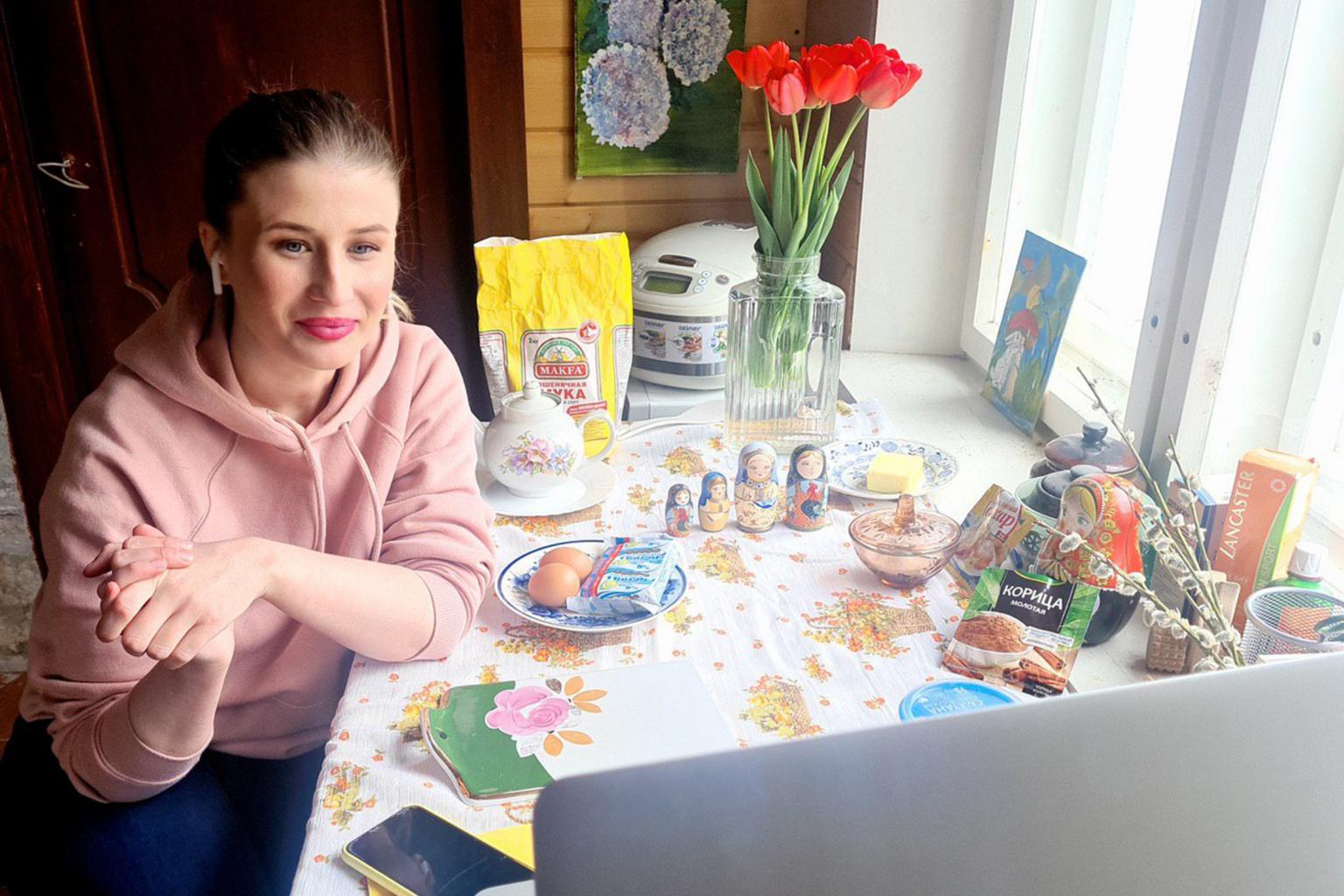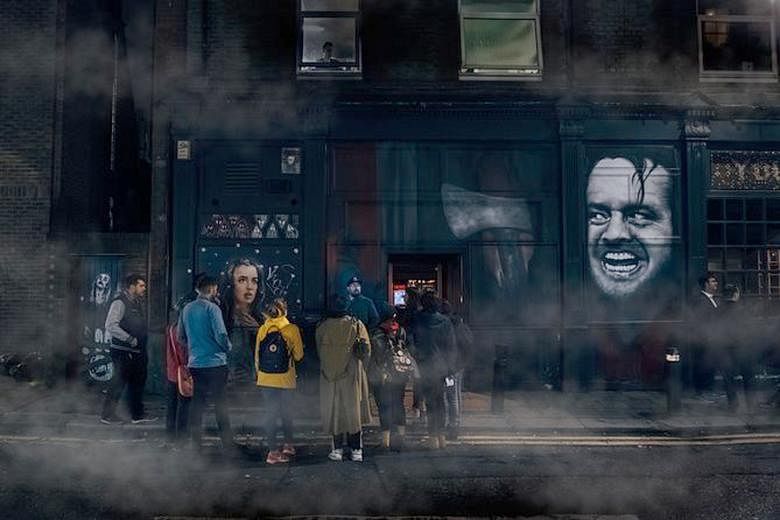SINGAPORE - It is not the end of the world for travel lovers deprived of an escape to elsewhere during the pandemic.
Perhaps you are an urban explorer, nature lover or foodie?
A profusion of new virtual experiences in every genre now lies at the end of an Internet connection.
These streamlined private tours of an hour or so are devised to keep globetrotters on the go while tour guides keep their jobs.
Ms Sara Cooke, director of communications for Vancouver-based ToursByLocals, says: "A virtual tour is a reminder that we can still have a shared experience with people around the world, even while we're confined to home.
"You can 'travel to Normandy' with people you love and miss."
Though there are limits to immersiveness on a virtual jaunt, online wandering is a fresh stream of revenue and will possibly remain a post-pandemic trend.
Global travel companies Airbnb, Viator, ToursByLocals, Withlocals and even Japan's indie Craft Tabby are among players who pivoted to these online offerings around April or May.
Since Airbnb launched its Online Experiences in April, bookings in Singapore have grown almost sevenfold, with food and drink the most popular category here and globally. About 600 experiences have debuted on the platform.
The trend is fed by the unabated desire to travel - safely.
Multi-currency wallet platform YouTrip, which recently surveyed 6,000 Singaporeans in its Travel Intent Survey, found that seven in 10 still desire to travel this year.
Forty per cent are willing to visit Covid-19 hot spots next year - compared with 15 per cent this year - a hopeful signal of the gradual recovery of travel.
Meanwhile, TripAdvisor found that more than two-thirds of travellers are already thinking of where they want to travel to next.
And, while cities were previously popular, the TripAdvisor study found that off-the-beaten-track destinations will be favoured after all this is over.
But even if islands or blissfully remote places become the post-coronavirus default, cities are certainly safe for virtual travellers right now.
Indeed, California-based Viator's top five online tours are all set in cities, except for Tuscany. Its Jack The Ripper Murder Mystery tour, for instance, takes visitors back to the Victorian-era London of 1888.
Choices are increasing and themes encompass animals, art, baking, cocktails, dance, family, movies, social impact, wellness and more.
Take Airbnb, for example, which lets animal enthusiasts meet rescued mini horses that are therapy animals in the United States.
What about street art in Buenos Aires or Delhi? Or cultivate optimism with an American Olympian and try laughter yoga in Portugal.
This month, the company started a collection of online culinary experiences that include four from Singapore. One new host is chef Malcolm Lee of Michelin-starred Peranakan restaurant Candlenut.

Real tours are multi-sensory and immersive, so guides who lead virtual tours have to work harder and more creatively.
Mr Lee Xian Jie, 30, a partner in Craft Tabby, which specialises in hidden Kyoto sights, says: "Both guide and participant are peering through a small window to the other's world, so it is a real challenge to break down that barrier."
He says the key is to pay close attention to the faces of participants "so that any quizzical look or flash of interest in the eyes" gets a response.
For a flower-hunting experience, he can tell when guests want to peer closely at a flower for longer or seem interested in how the flower has influenced haiku poets.
To heighten the immersive factor, guides may use music, quizzes and a moving dashcam. Guests can opt to cook alongside their guides on the other side of the screen, because ingredient lists can be sent ahead of time for Arabic coffee, for instance.
Offline or online, the most successful guides have engaging personalities and research fully.
Mr Parin Mehta, director (Asia-Pacific) of Airbnb Experiences, says: "Guests interact with dynamic hosts who share their passions and provide unique insider access to local cultures and activities. These are real people making real connections in real time."
Companies also book experiences. "The interactive nature of the Online Experiences, conducted from home, meets a real need for companies looking to build rapport and collaboration in remote teams."
The lower fee is also appealing - apart from not paying airfare.
Ms Cooke of ToursByLocals says: "Rates are much lower than in- person private tours. The tours run on average from US$40 (S$56) to US$75 total for typically up to six users, and usually run 11/2 hours. A typical private tour would be three hours and cost closer to US$300."
Online experiences are shorter - to steer clear of video-conferencing fatigue. Tours are often 45 to 90 minutes, except for longer cooking classes.
For Russophile Fen Chia, 36, virtual travel ticks many boxes. She tuned in for a Russian breakfast pancake class in a dacha, or countryside summer house.
She is curious about dacha culture and it was her first glimpse of one.
"Virtual tours are particularly valuable for experiences which are not easily available to the casual traveller, even during normal circumstances," the tech-sector publicist says.
"A cooking class set in a dacha is one example. I would be equally interested in a virtual visit to a Soviet-era sanatorium in the Caucasus or one of the hard-to-access Russian republics.
"All it takes is a good Internet connection, video-cam and command of English on the part of the host."
Although many paid virtual tours were forged in a sombre time, they may become a significant trend even when it is safe to venture out again.
Travel companies have noticed positive reviews. Going virtual can be a teaser for a future trip or a time to plan dream itineraries with a local expert. It can even be an add-on after a trip.
Ms Cooke from ToursByLocals says: "For people for whom finances, or perhaps health and mobility are a challenge, a virtual tour can give them a window into a different culture and a chance to spend time making a connection with a place that it's not possible for them to travel to."
Virtual reality - the tech-enabled sibling of virtual tours - can significantly transform how people travel.
The National Geographic magazine reported: "Virtual reality may even expand travel opportunities in years to come, as researchers focus their work on experiences that are expensive, dangerous, rare or even impossible in the real world.
"Bucket-list items such as whale-watching or seeing the Sistine Chapel could become accessible to everyone, with all the thrills, but very few of the environmental impacts."
Already, some guides like Russian Anna Belousova, 30, are expanding their online portfolio. From March, she began to craft experiences focused on the Red Square, Moscow space exploration and cooking.
Next, she is thinking about the trendy Red October art cluster, Depo Food Mall, and the hidden streets and lanes downtown.
She reflects: "My virtual tours and online cooking classes help me greatly to get a sense of professional purpose during these dark times, to have a source of income and to get such vital motivation that I can tackle the day, since I've always been such a workaholic in a positive way - tour guiding is my passion and joy."












